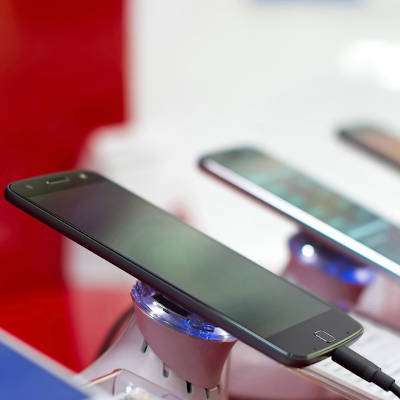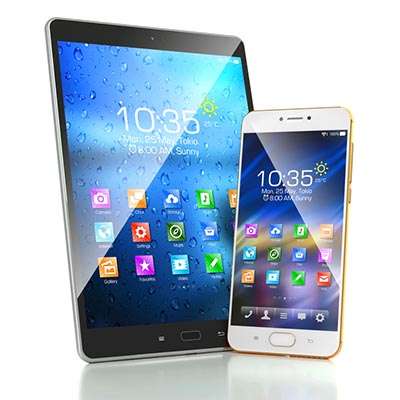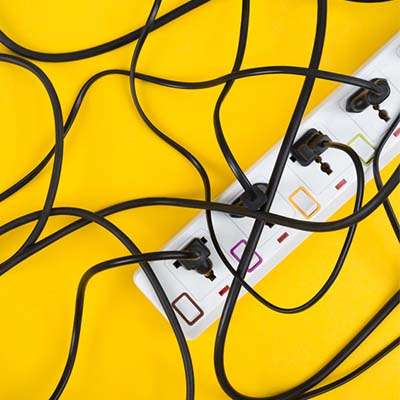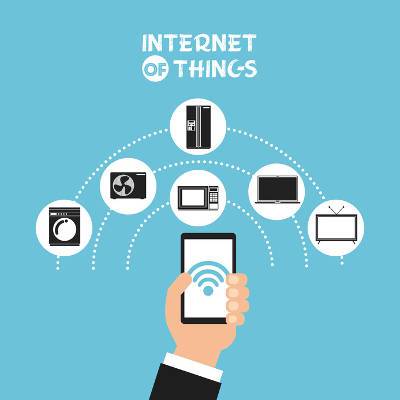Macro Systems Blog
Mobile devices are in the same boat as the Internet: they’ve only been around for a few decades, but demand for both is inexorable and continues to redefine the way people compute. Listed below is a brief history of the mobile device and how we’ve got to the point where society couldn’t function without them.
As their name implies, mobile devices go everywhere, including the modern office; it's probable that your employees will want to take advantage of their capabilities to accomplish more of their responsibilities and tasks. This can be beneficial to your organization, assuming that you have a well-thought-out mobile device policy in place.
There was an era when we didn’t have to worry about catching computer viruses on our cell phones. However, with the exponential growth of mobile technologies, including application development options, mobile malware is now a problem, and it can become a significant problem for your business. Below we'll take a look at the increasing mobile malware market, including the risks and what you can do to keep it from being a problem for you.
How many times have you been irritated about having to reach behind your desk in order to get to the outlet needed to plug your phone into? That irritation could vanish with near-field induction charging, more commonly known as wireless charging. Below we'll look at what modern wireless charging is capable of, as well as what type of hurdles can be avoided with its use.
The world manufactures over 50 million tons of e-waste every year as consumers and companies throw out their smartphones, computers, and appliances, less than 20 percent of which is properly recycled. The other 80 percent winds up in a landfill or broken down improperly. Let's spend some time reviewing society's increasing e-waste problem and what industry professionals are doing to reduce it.
Smartphones are astonishing and as a result many people now have one. Thus, when the annual financials were revealed, it was surprising to see that the smartphone market was diminishing. There are many reasons for this, but the main one has to be that older devices are holding up well compared to newer devices. This results in consumers being less likely to make the significant investment to purchase the latest device.
One of the most vital aspects of smartphones is how portable they are; business professionals can be productive no matter where they are. Alas, this also means that they have more of an opportunity to lose their devices, along with the data they contain. If the device is Android-based, then you can alleviate this trouble thanks to built-in features that can help you locate it.
In this era the smartphone camera has transformed into one of the biggest selling points when consumers want to buy a new phone. This is mostly because it is vital to the use of many of the applications that your average user utilizes the smartphone for. It just goes to show that, in less than two decades, how much more utility the phone has than it did when the Samsung SCH-V200 first provided users the option of taking pictures with their phone.
Have you ever packed too many personal belongings for a short trip? Have you ever packed too much technology? Do you have multiple devices? The truth is that no matter the reason you are traveling, you don’t need to pack like royalty to stay productive while you are on the road. Let's discuss how scaling down your technology while you travel is a solid practice.
At first, the idea of wireless charging seems to be a perfect; what if, someday, our devices never have to be charged? This is probably why such aggressive progress has been made toward building a better battery charger. Nevertheless, not everyone is convinced that a wireless charging upgrade will have the desired results.
Mobile devices continue to be an important part of doing business, and organizations are ready and willing to accept them into the workplace environment with open arms. Yet, the fact remains that doing so can be of significant risk. Believe it or not, the majority of businesses overwhelmingly support mobile devices, but don’t put measures into place that can protect them in the event of a hacking attack or data leak.
Augmented reality is a growing trend in the technology industry, and perhaps one of the best known uses of it today can be found in the extremely popular mobile device app, Pokemon Go. However, hackers have seized the opportunity to infect players who want to “catch ‘em all” with a backdoor called DroidJack - something that certainly won’t help gamers “be the very best.”
Though it’s still a somewhat new concept, payment via mobile device is gaining in popularity. The latest smartphones make it easier than ever to pay bills or send money whenever needed. Yet, this also presents an interesting conundrum. What’s the best way to make mobile payments, and how can they be processed with minimal chance of being compromised?
If we asked you to count the number of mobile devices in your workplace, would you be able to do so? This includes smartphones, laptops, tablets, and others--anything that’s not a workstation or hardware tied down to your location. While mobile devices can be beneficial for any business, it’s still important to keep security at the top of your mind. Here are three topics that you need to be sure you’ve considered before allowing mobile devices in the workplace.
Learning how to utilize a new technology can be difficult. If you’ve been a committed Apple customer but are now considering switching to Android, you should know that simple differences between the two platforms can be disorienting. Let's go over some information you need to know when switching away from the iPhone.
Do you realize how the countless devices entering the workplace will influence your business’s infrastructure and security? It’s imperative to remain aware about how the Internet of Things and connected devices will affect your business in the near future. According to HAX Hardware Trends, 2018 will see a string of changes in how we approach the Internet of Things, as well as how businesses govern it for their networks.
With businesses these days relying significantly more on mobile devices, they have to be sure that the utilization of these devices doesn’t add security issues for the business. In lieu of the prominent role smartphones play in this modern business era, it is imperative that you find out how to protect your business. Below are a few ideas on "how to lock it up or lose it."























